What’s it all about?
A historical tenet of the BCBR has been to introduce competitors to amazing trails and welcoming local communities that celebrate mountain biking. For this, the classic BCBR format was built around military grade logistics. A combination of school buses, trucks, ferries and the occasional float plane moved the riders, their bikes, tents and race village from stage to stage across Vancouver Island and the Sunshine Coast (just north of Vancouver). When I last rode the race in 2018, this travelling circus drew together over five hundred riders to eat, drink, sleep and swap their tales of the trail each evening.
In response to the pandemic, 2022 saw the race moved inland and east to the Okanagan Valley, away from its historic home on the Vancouver coast. This meant that the race facilities were pared back to the start/finish essentials with fewer riders, who now needed to source their own accommodation and transportation between each stage. In the case of our group of four UK riders, that meant a slightly battered, but practical Ford pickup and the liberal use of online home rental platforms.
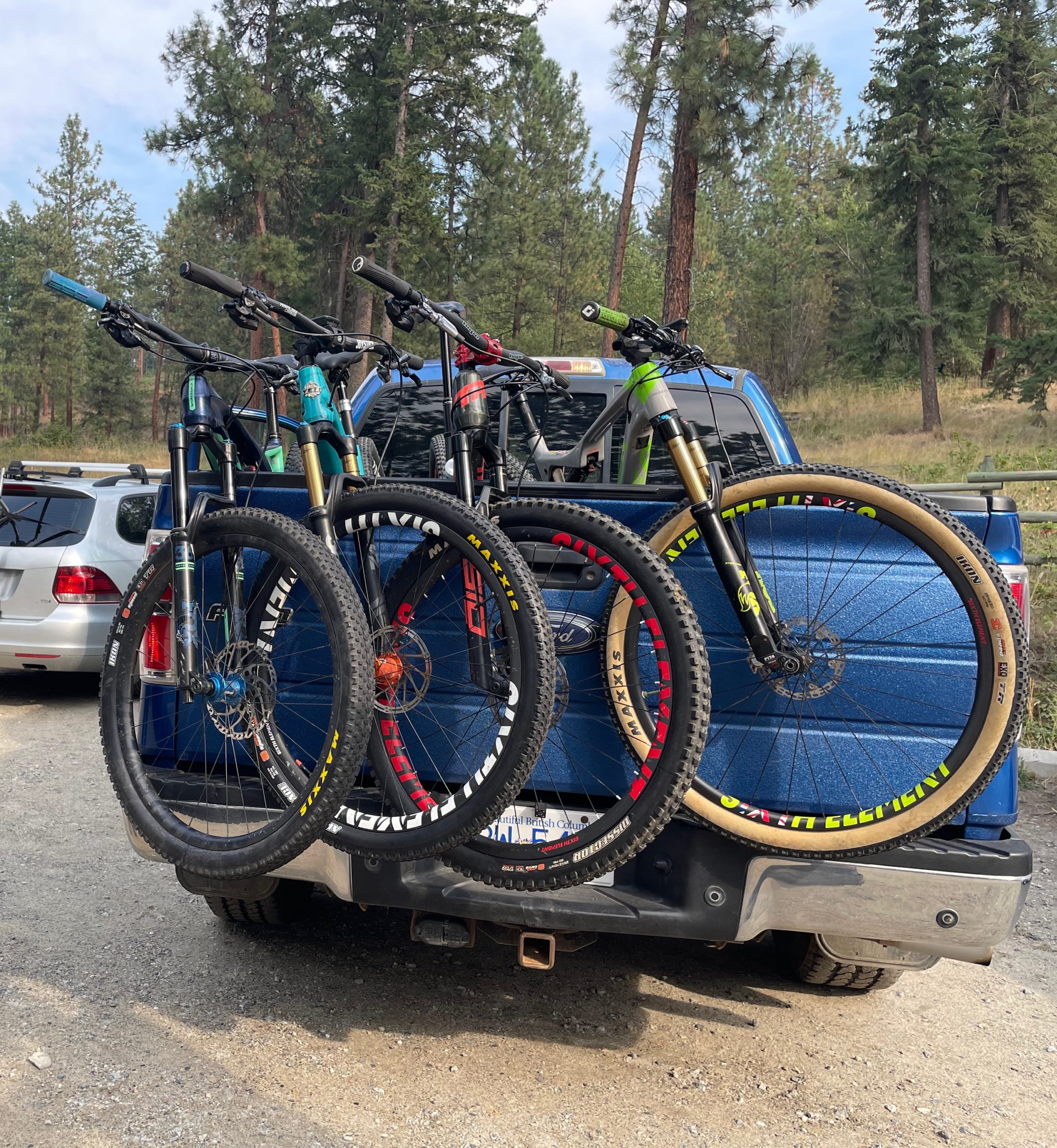
What’s the route and atmosphere like?
The Okanagan Valley runs north-south over 150 kms through the eastern edge of British Columbia from Penticton to Vernon and is an area that is unlikely to be familiar to many UK riders.
The 2022 race was to start from Kelowna which sits in the middle of the region then moved to Salmon Arm, Silver Star, Vernon and Apex Mountain before finishing up in Penticton. My verdict is that whilst locations like Whistler and Squamish may carry international cachet, undoubtedly the Okanagan delivers on every level.
The valley is hemmed in by mountain peaks that rise from crystal clear lakes. Dotted along the valley sides are vineyards and throughout each of the small cities and towns, cafes and micro-breweries occupy every street corner. The coffee is great, the food fabulous, the people friendly and the riding sublime. Local trail building communities manage thousands of kilometres of amazing singletrack, with each trying to outdo the other in terms of trail quality.
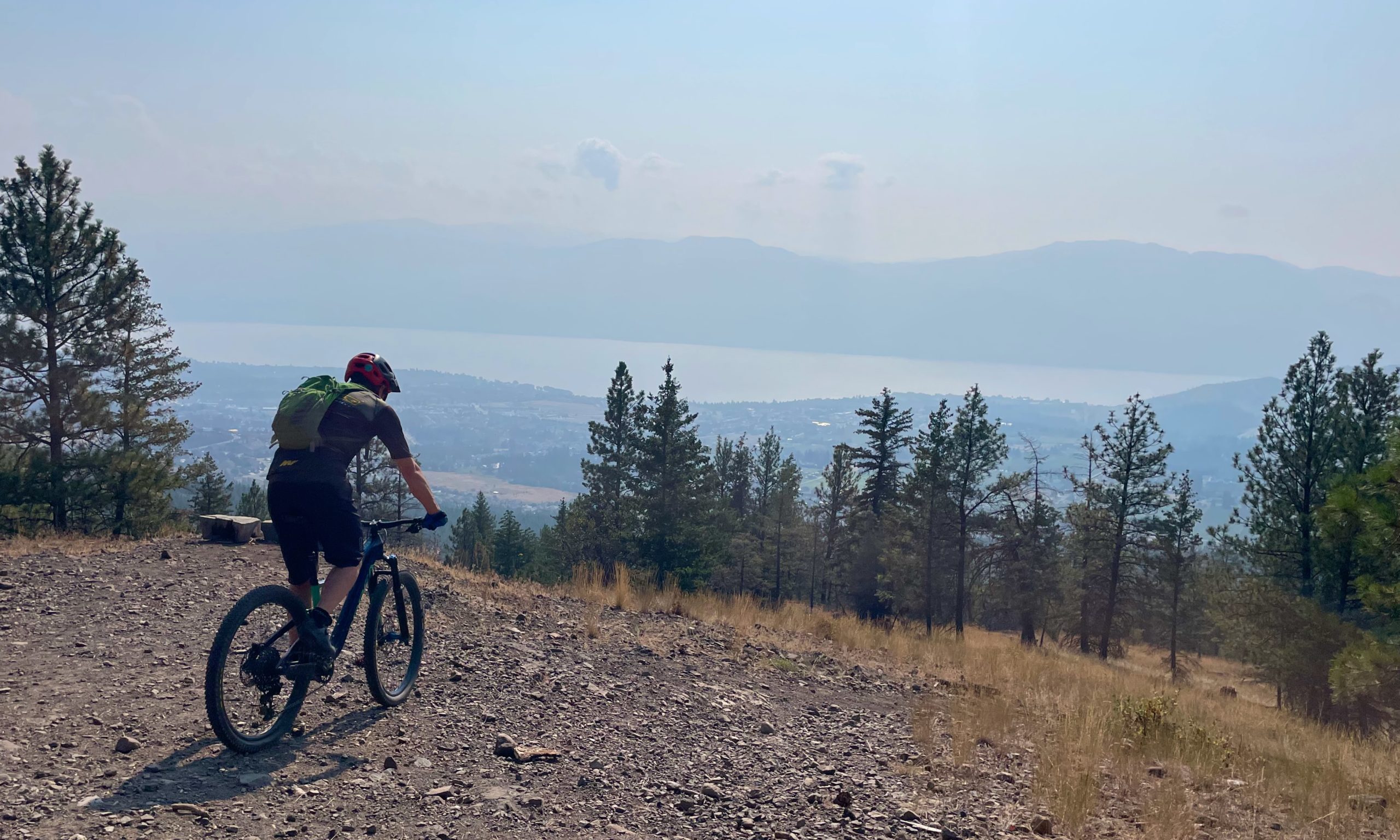
The 2022 race days maintained the basic principles from previous BCBRs. After a mass rider briefing and a short sharp 10 km prologue to sort the racers into starting waves of around 50 per group, the race proper would include six stages timed from start to end. All the racing took place off-road, almost all of it on singletrack up and down, with each of the 30km to 55km stages climbing between 1200m and 2000m. The classic BCBR format favoured point to point routes, but in 2022 every stage formed a loop back to the start point.
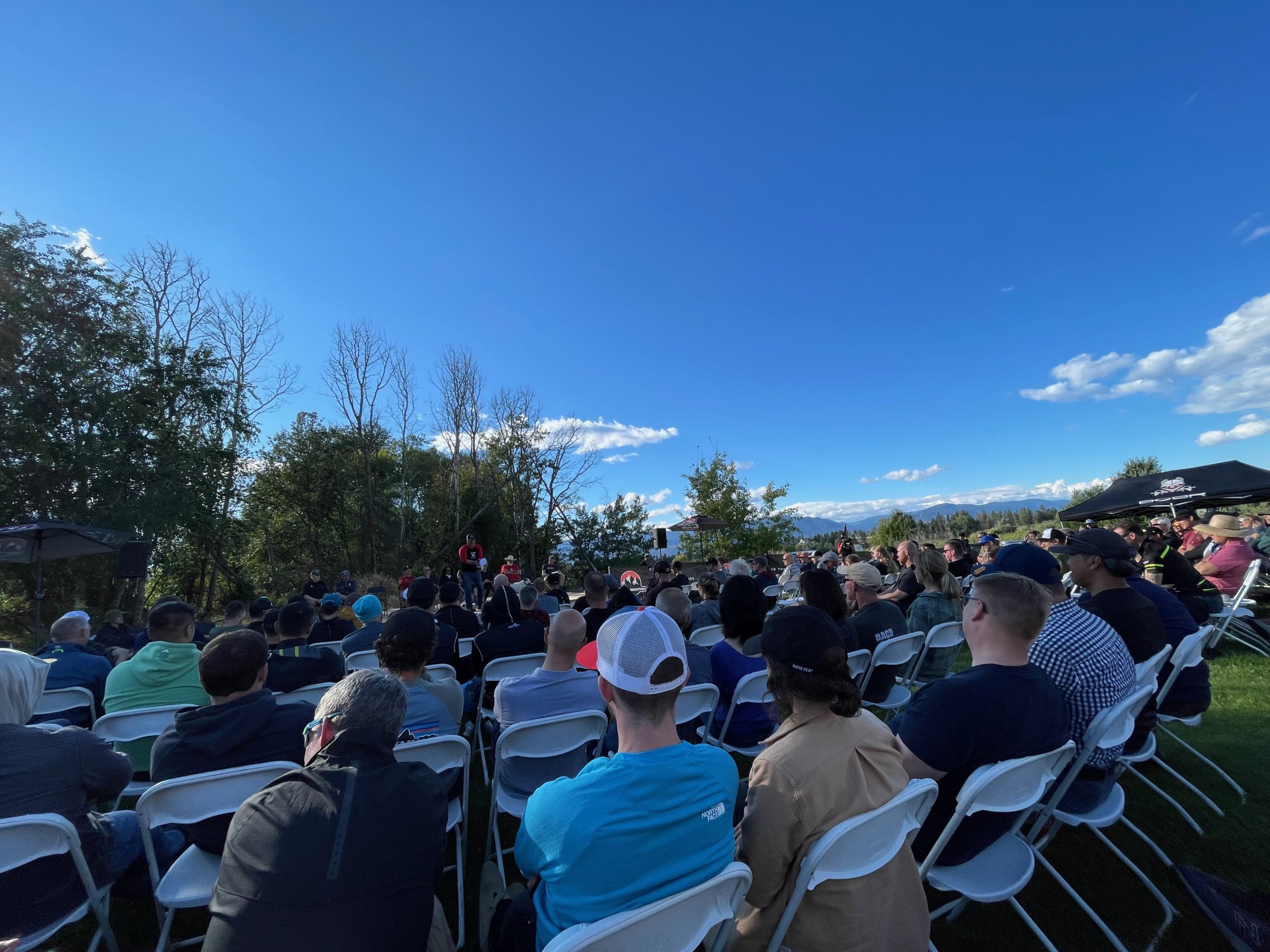
My personal preference is for courses that start and end in different places because it feels more like an adventure. However, it was understandable that the 2022 format couldn’t facilitate point to point stages and the format didn’t impinge at all on the quality of the trails.
Navigation out on-trail was simple. No staring at a GPS on the BCBR, a series of pink ribbons keep riders on the right track. Out on-course, moto and e-biking marshals rove the course to keep everyone safe and there are regular, well stocked feed stations with mechanics that deliver sustenance for bike and body as well as cheer that lifts your spirits.
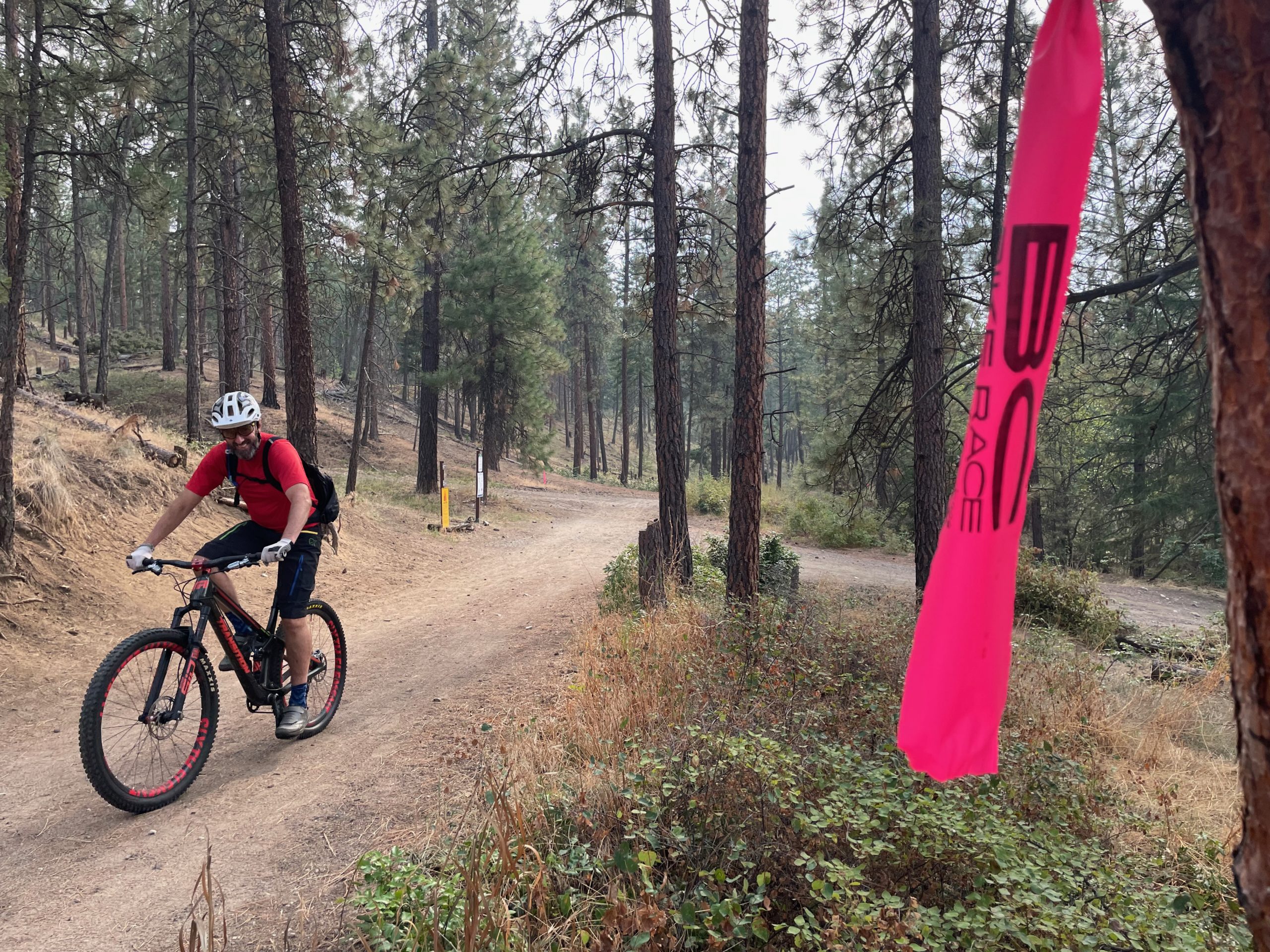
The BCBR feed stations are legendary, and this tradition continued in 2022. Loud music beckons you in from some distance out as you roll in, dancing volunteers with bad jokes and great attitudes lift your spirits whilst you graze the buffet of Cliff bars, peanut butter sandwiches, snacks and electrolytes. Even though I tend to ride well past the sharp end of the race, feed station crews remained enthusiastic and full of positivity.
In previous BCBR events, the feed stations have been supplemented by locals who head up onto the trails to cheer you on and hand out a range of local specialities. A shot of whisky from a group in fancy dress, cookies from a guitar playing cowboy as you crest a steep climb or maybe bacon from a man brave enough to stage a fry-up in bear infested woods. Unfortunately, the nature of the relationship between the towns and trails in the Okanagan couldn’t facilitate such weird acts of kindness in 2022. That won’t matter to those pushing hard at the front, but for riders who are along for the craic and the adventure, meeting a random group of locals dressed in grass skirts handing out rum cocktails from an ad-hoc Tiki-bar (as happened in 2018) was the unique type of surrealism that sadly the 2022 format couldn’t replicate.
What about the trails and the riding?
Well, this year’s courses were exceptional in quality and varied in terrain. At Kelowna, the stand-out trail is called Vapor; challengingly steep with rocky switchbacks through the forest and slabs with sharp edged drops. The Salmon Arm stage had the biggest climbing of the race during which I suffered a slashed tyre. I was grateful for the robustness of my Sixth Element carbon rims which survived me riding to the nearest feed station and blessed by some BCBR magic as a fresh tyre was fitted for free by the race mechanics.
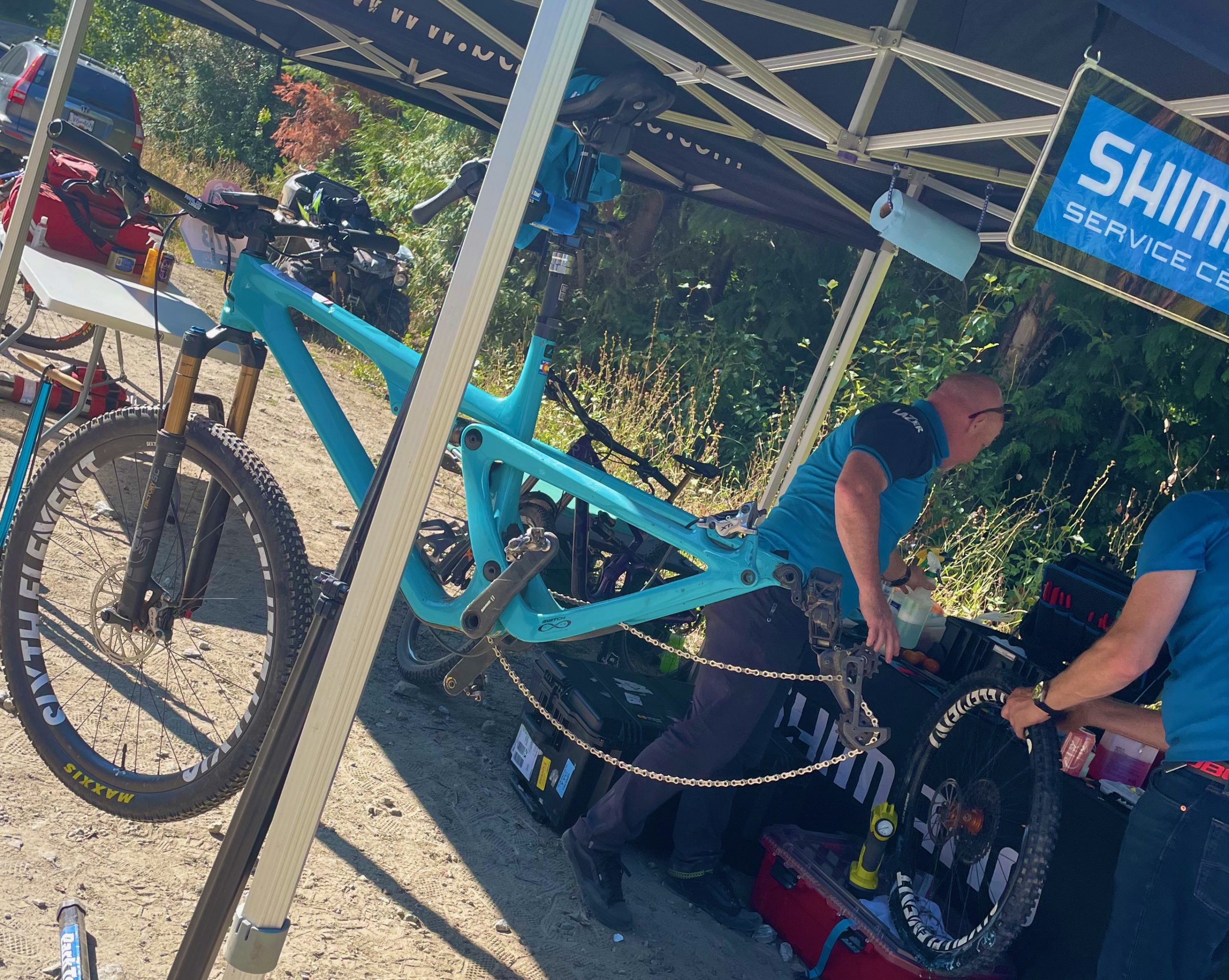
The ski resorts of Silver Star and Apex Mountain meant that some days racing took place at altitudes where I could feel the air thinning. This also created the unusual situation of starting a day’s racing with a long descent, the feature trail on Stage 3 being a 600m descent along 10km of bermed singletrack called Beowulf which flowed at high speed, smoothly down to a log-strewn river crossing before climbing back up over 1000m to reach the ski village.
The stage at Vernon included a vertigo inducing, steep climbing trail. As the trail steepened, my gaze up the hill was drawn to the unending series of steep switchbacks and the unbroken train of riders, grinding towards the summit. But as with all climbs on the BCBR it wasn’t just added to make the race hard, it’s there to take you to the best riding. Having emerged onto a high plateau, the amazing Big Ed trail then dropped us back towards Lake Kalamalka. For over 10km of continuous downhill, the features ranged from steep sandy chutes and rocky switchbacks to tricky rock-rolls which present as a shear drop but can be rolled through, provided you trust the trail builder. I reached the bottom breathless but exhilarated to have survived such a complex and challenging trail.
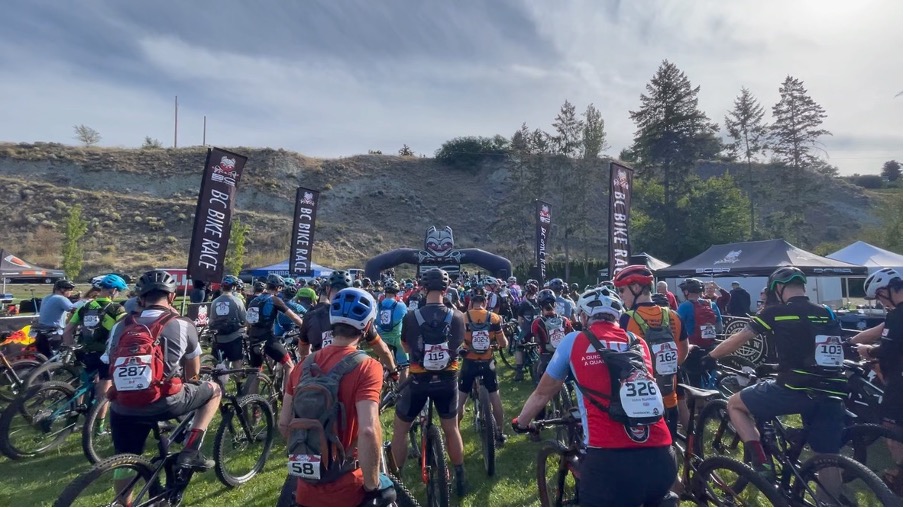
Big Ed had taken my skills and confidence into new territory, which was great because the final day saw us riding above Penticton on the Three Blind Mice trails. For the final 20km of the race I followed an enduro rider from NZ who was supernaturally fast down the trails. I pushed hard but she seemed to find speed from every bump, rock and turn, finding lines that were non-existent to me. The terrain was fast, picking its way down a series of giant stone shelves. In between each of the splintered craggy outcrops, my Yeti SB100C would accelerate hard before I had to try to float over the sharp rocks to make sure I didn’t have another flat in the last few kilometres of the week.
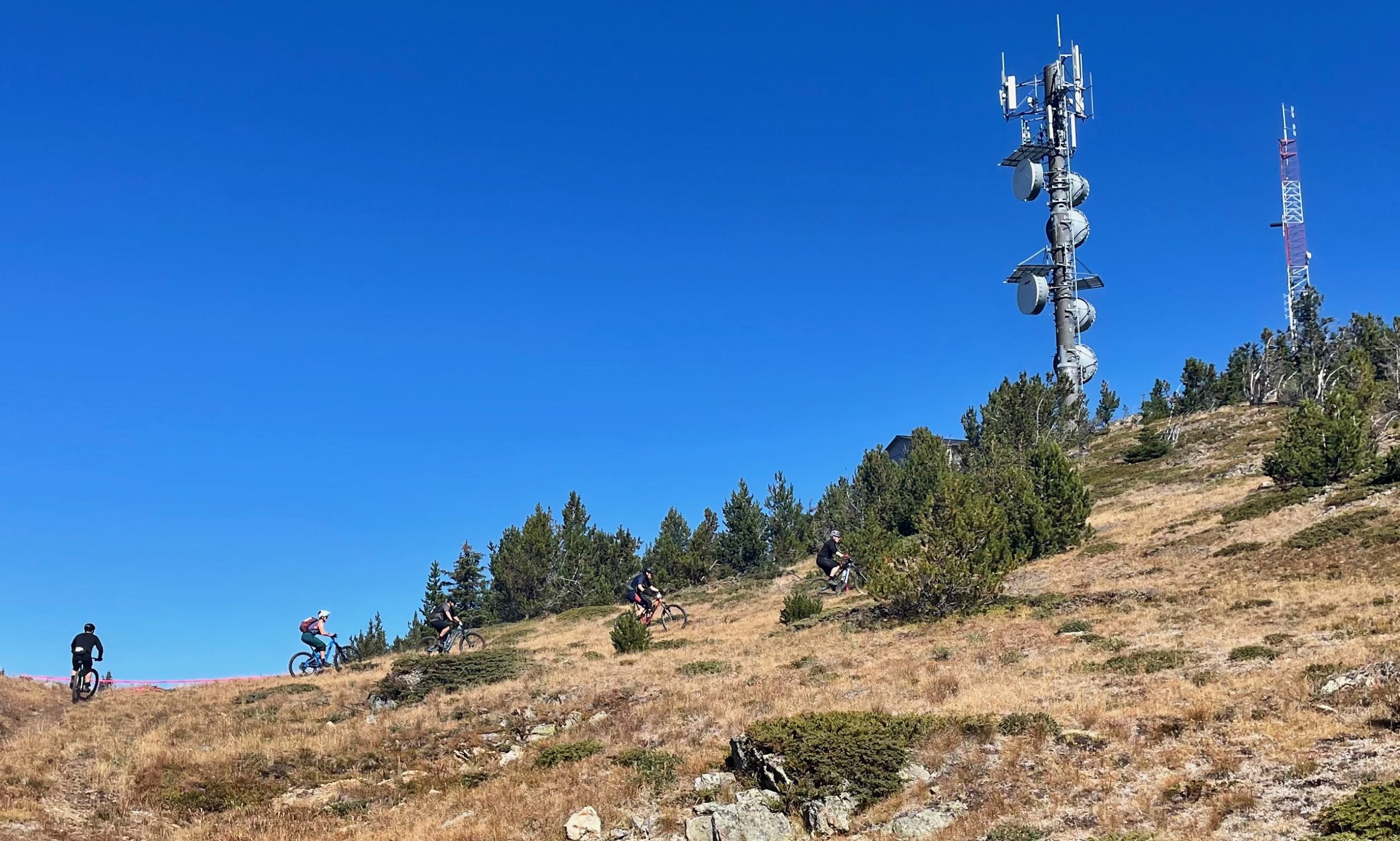
HOW WAS The overall experience?
As we spun into the finish arena, it felt like the BCBR of before. Free beer was on offer and we had a chance to chat properly with the riders who we’d raced alongside all week. We’d all ridden up and down the height of Everest during the week and everyone had tales to swap, bikes to admire, hands to shake.
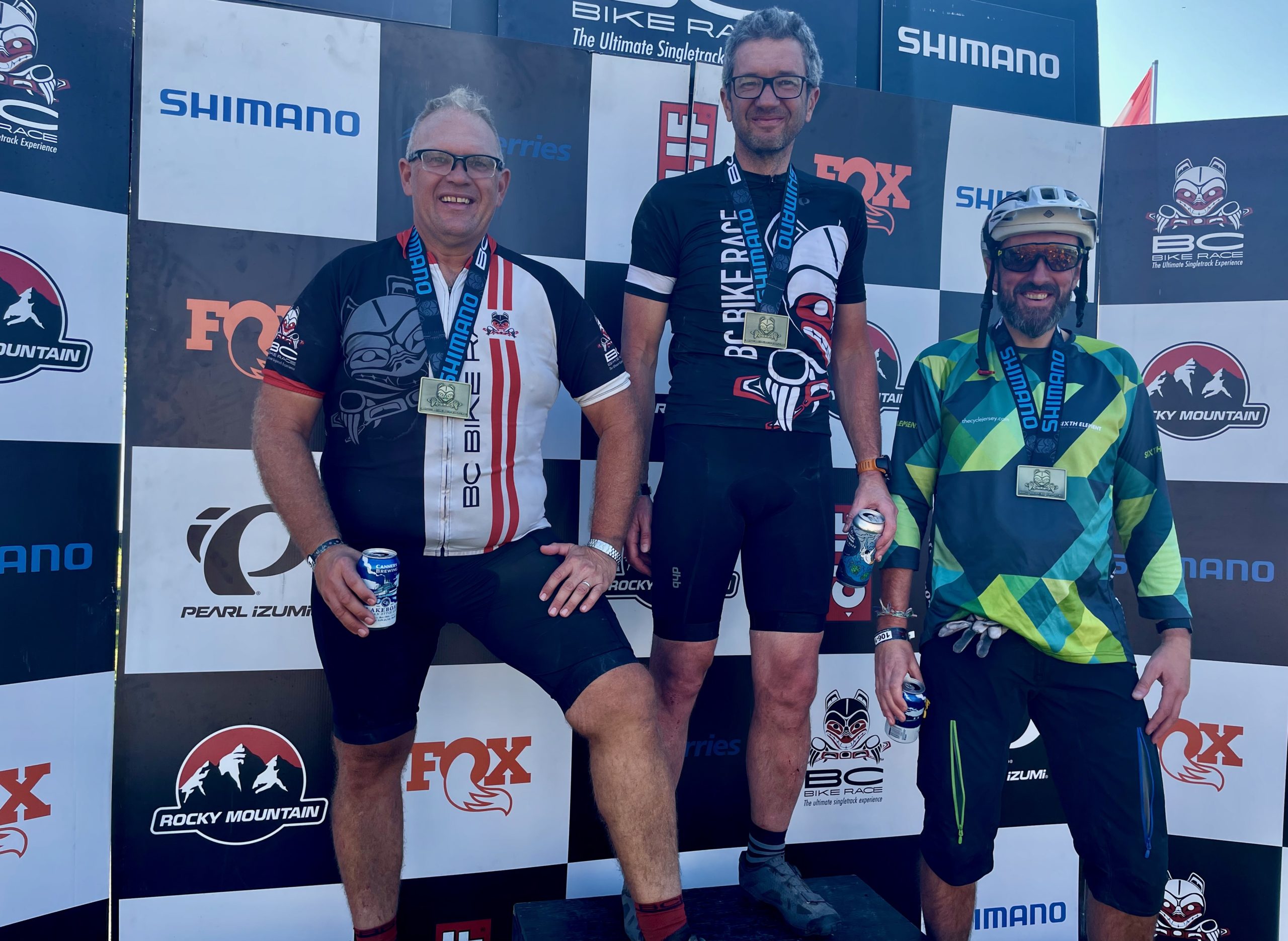
Moving the race to the Okanagan had resulted in bigger climbs and tougher descending than previous editions. Maybe I feel that more as I am just a little bit older, but then again, I did make it up and down everything so perhaps my bike is a little bit better than previous years and the race has adapted to the ever-advancing capabilities of all-mountain bikes?
The quality of the riding may be why you enter something like the BCBR, but the friendships you make are what marks it out as such a special event. The temporary changes to the format could not destroy the camaraderie that defines this race. I’d stopped to help riders who’d had offs, I’d suffered my own mechanicals and been patched up on course. I’d chatted with pros and amateurs in local bars and on the finish line. It was clear that the spark of the BCBR remained alight ready to be rekindled in 2023 when the BCBR returns to a travelling race-village format across Vancouver Island.
At the heart of the BCBR remains the concept of introducing riders to local bike centred communities and that continued despite the changes forced upon it. I already knew British Columbia has some of the best trails on the planet but did not know that such exceptional riding existed away from the Vancouver region. Riding the BCBR in 2022 affirmed that it remains the best way to discover trail networks you may never have heard of but will remember forever. It is still the best week on a bike.
If you’re inspired by Franky’s trip or enduro racing sounds appealing to you, it’s crucial that you have adequate insurance in place. Click to find out about Yellow Jersey cycle travel insurance for mountain biking holidays. We will cover emergency medical expenses, trip cancellation, trip curtailment and trip abandonment whilst racing. Yellow Jersey also offer stand alone mountain bike insurance policies designed to cover accidental damage, crash damage and theft whilst in the UK and abroad.